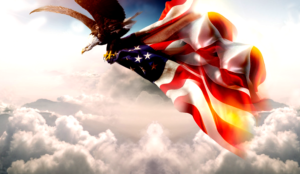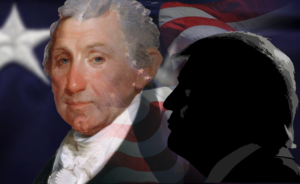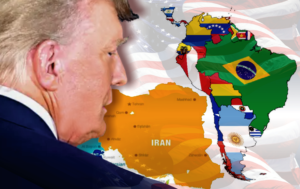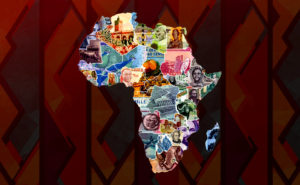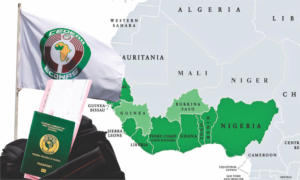Russia’s Economy Contracts as War Burden Grows: Ordinary Lives Squeezed by a Shrinking GDP
Russia’s central bank has quietly revealed that the country’s Gross Domestic Product is shrinking. A stark sign that President Vladimir Putin’s war-driven economy has tipped into recession. The numbers confirm what many Russians already feel in their daily lives: higher prices, scarce goods, and growing uncertainty, even as the Kremlin insists the nation is resilient under Western sanctions and wartime spending.
Russia’s central bank quietly acknowledged what the Kremlin has resisted admitting for months: the economy is shrinking. On Friday, the Bank of Russia lowered its benchmark interest rates yet again, even as it denied that the country had slipped into recession. Yet its own data tells another story that the Gross Domestic Product has contracted althrough now in 2025, the sharpest signal that President Vladimir Putin’s war economy is faltering under the weight of both external pressure and internal strain.
![]()
For Moscow’s technocrats, this is more than an economic technicality. It marks the deepening of a struggle that spans battlefields in Ukraine, diplomatic arenas in New York and Brussels, and the living rooms of ordinary Russian families.
The war has transformed Russia’s economy into something unrecognizable from its pre-2022 form. Military spending has soared, driving factories to churn out missiles instead of consumer goods, and redirecting billions of rubles from health care, education, and infrastructure.
Official figures show that industrial output linked to defense remains buoyant. But beyond these heavily subsidized sectors, growth has slowed dramatically. Small businesses face shortages of imported parts, sanctions continue to disrupt supply chains and inflation has eroded household savings. Some say, the government can deny recession in words, but the data and people’s lives, show otherwise.
Russia’s economic trajectory cannot be divorced from its diplomatic isolation. Western sanctions, once dismissed as symbolic, have cut deeper as the war drags on. From oil price caps to technology export bans, each measure has chipped away at Russia’s long-term growth prospects.
The Kremlin counters with new trade routes through Asia and Africa, touting a pivot away from the West. But the reality is more fragile: discounts on crude oil to India and China eat into revenues, while logistical costs climb. Even Moscow’s allies tread cautiously, wary of secondary sanctions from Washington and Brussels.
At the United Nations, Russian diplomats trade barbs with Western counterparts, framing the war as a global struggle against “neocolonialism.” But such rhetoric does little to ease the economic pain at home.
Beyond balance sheets and diplomatic sparring, the recession carries profound human consequences.
Inside Russia, rising prices for food and medicine have pushed vulnerable families closer to poverty. Pensioners queue longer for essentials; parents juggle multiple jobs to afford rent. State television promotes narratives of resilience, but beneath the surface frustration simmers.
Meanwhile, the war’s direct toll is felt most acutely in Russia’s poorer regions. Young men are drafted in disproportionate numbers, leaving behind communities hollowed by loss. Those returning often carry physical injuries or psychological scars that social services are ill-equipped to address.
“The war economy is not just statistics,” says a human rights worker in Yekaterinburg. “It is children without fathers, villages without breadwinners, and hospitals without resources.”
For Putin, maintaining the image of economic control is central to political survival. The Kremlin portrays falling GDP as a temporary setback, while trumpeting military “successes” as proof of national strength. Yet cracks are showing.
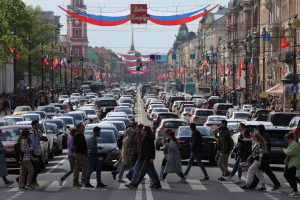
The lowering of interest rates, while aimed at stimulating growth, risks fueling further inflation, undercutting household stability. And while war production sustains jobs in the short term, it crowds out investment in the civilian economy, threatening long-term resilience.
Political dissent remains tightly controlled, but history shows that economic decline has often foreshadowed instability in Russia. The memory of the 1990s still looms large, when economic collapse fed disillusionment and reshaped the country’s political trajectory.
Russia’s central bank insists that growth will resume by year’s end. Independent analysts are less optimistic. With sanctions tightening, war expenses ballooning, and consumer demand weakening, recovery looks elusive.
What’s clear is that the consequences of this downturn extend far beyond GDP charts. It is a clash not only of economies and diplomats, but of human lives caught in the crossfire of geopolitical ambition.
As Russia’s war economy grinds on, the numbers may be written in spreadsheets in Moscow, but the impact is etched into daily life, from the empty shelves of provincial towns to the whispered doubts of a nation asked to endure endlessly for victory.


